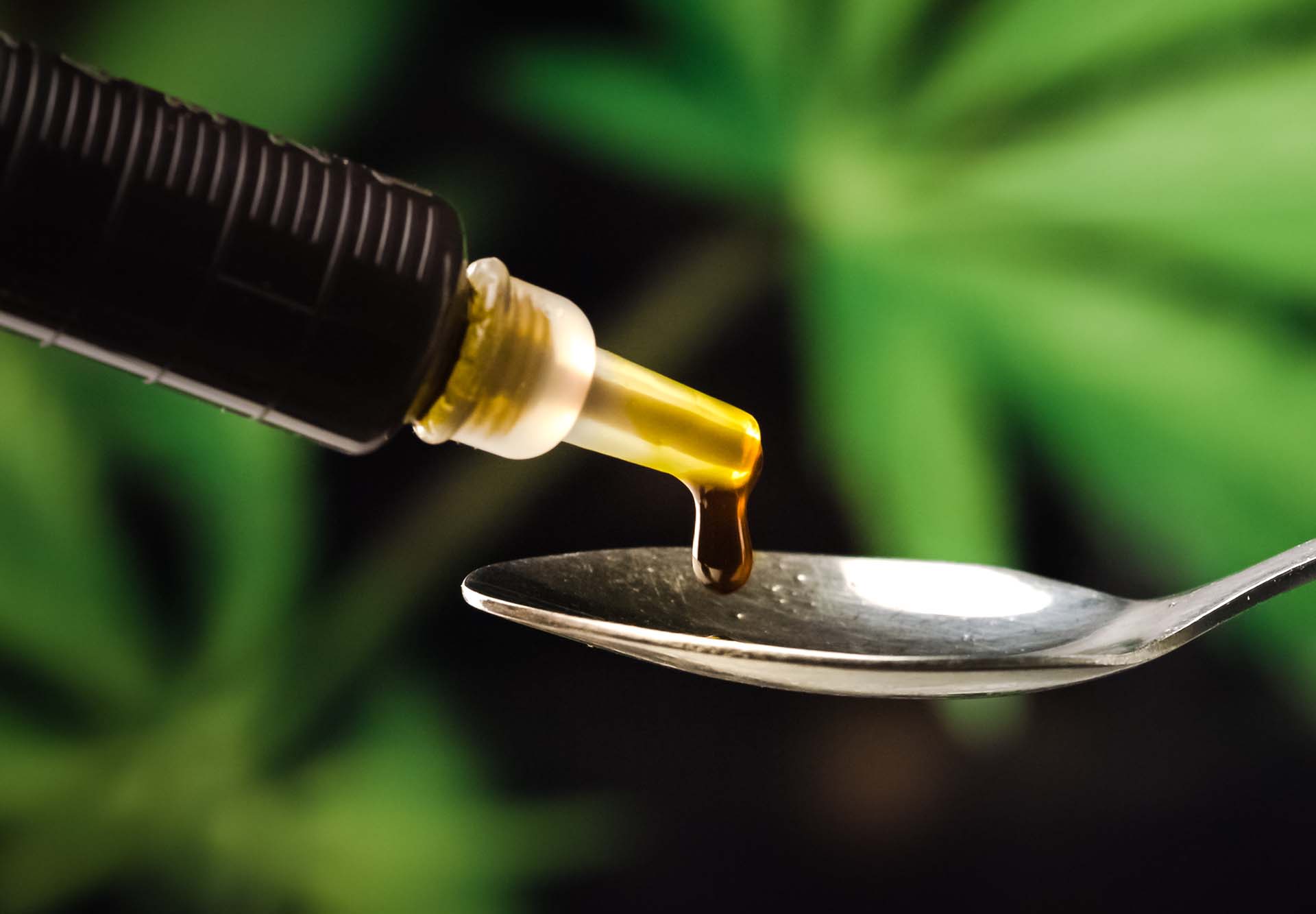If you are new to medicating with cannabis and have wondered, “what is RSO” or “what is RSO oil used for,” then you’ve come to the right place.
RSO stands for Rick Simpson Oil.
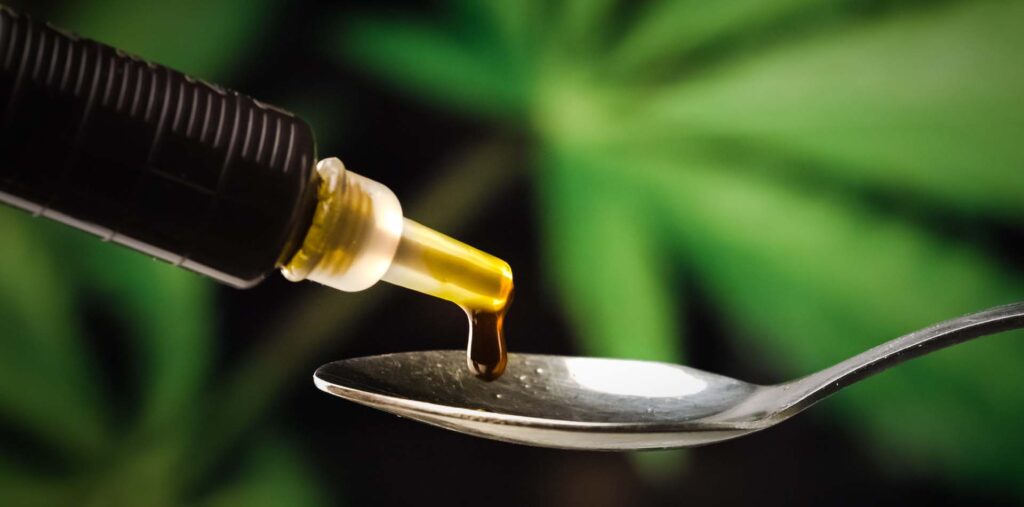
Rick Simpson is a retired Canadian engineer turned medical cannabis activist. In 2003, Rick was diagnosed with basal cell carcinoma. Rick had successfully used medicinal marijuana to treat a prior condition and had read some research about THC’s (Tetrahydrocannabinol) cancer fighting potential. So, he decided to use cannabis to try to cure his skin cancer.
Rick produced an extremely concentrated form of THC oil. According to Simpson, after a few days of applying the cannabis oil to the spots on his face and neck, the spots went away.1
This oil became known as Rick Simpson Oil (RSO) and it is produced from strong Indica strains with high THC levels, typically between 60% – 90%.
RSO Oil – Why Indica and Not Sativa?
The reason Indica strains of cannabis are used to create RSO oil is that Indicas are known to provide full-body sedative effects that can leave patients feeling relaxed and sleepy.

Since sleep is an essential component of the healing process, strong Indica strains can help to promote much needed rest and relaxation for those battling serious medical conditions, like cancer.
To learn more about the differences between Indica, Sativa, and Hybrid Strains of medical cannabis, click here.
Rick Simpson Oil Made Available to Those Who Need It
Rick Simpson never sold his RSO oil or tried to profit from his discovery. Instead, he has openly shared his process of making RSO and has encouraged people to make their own oil at home.
Since using RSO oil to treat his skin cancer, Simpson has grown his own cannabis and supplied thousands of cancer patients with his oil at no charge. These days, RSO is available at many medical cannabis dispensaries across the country.
The term RSO is sometimes confused with FECO (Full Extract Cannabis Oil).
Although the two are similar in their powerful potential benefits, they are not the same.
So, before we get into the benefits of RSO, the conditions it treats, how it’s produced, and how much RSO you should take, let’s cover the differences between RSO and FECO.
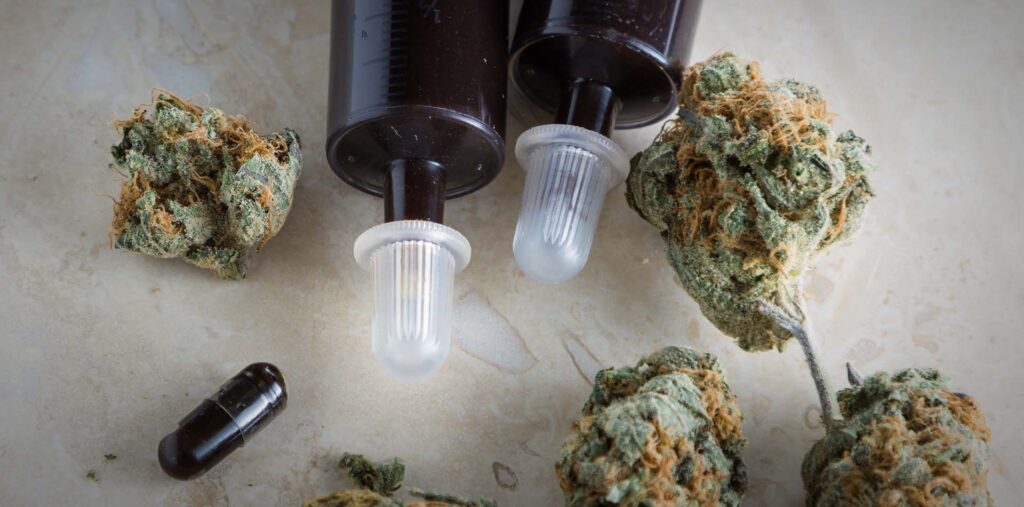
What’s the Difference Between RSO and FECO?
The distinction between RSO and full extract cannabis oil (FECO) comes down to the type of solvent and amount of heat used during the extraction process.
In both RSO and FECO, solvents are used to separate the cannabinoids and other active compounds from the plant material. Then heat is applied to help evaporate the solvent – leaving behind the resin extract.
Full Extract Cannabis Oil
Full Extract Cannabis Oil typically uses ethanol or CO2 to extract cannabinoids like THC and CBD as well as the terpenes and other active compounds found in cannabis. With FECOs, lower temperatures are used to extract the active compounds, and as a result, more cannabinoids are left behind in the resin.
Rick Simpson Oil
With Rick Simpson Oil (RSO), naphtha or alcohol are used in the extraction process instead of ethanol. For RSO, higher temperatures are required to evaporate the naphtha or alcohol during the extraction process than FECO.
As a result of the higher temperatures, some of the plant’s terpenes can be lost in the process. Although some of the terpenes are lost, RSO does retain chlorophyll and other health enhancing compounds that evaporate at higher temperatures.
What Is RSO Used For?
RSO is considered to be a harmless, non-addictive natural medication that may be helpful in the treatment of cancer. But its use is not limited to those battling cancer.
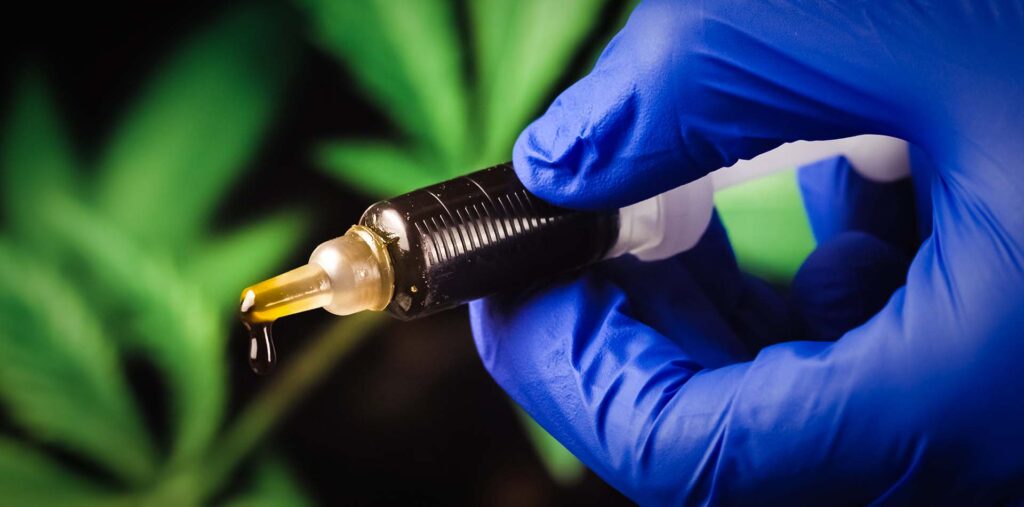
One of the commonly known benefits of cannabis, and its active compounds, is that it is one of the most effective anti-inflammatory medications available, with very few serious side effects.
And, since chronic inflammation is a common factor in so many illnesses, RSO is believed to be helpful in the treatment of a wide range of conditions, including using RSO for:
- Anxiety and depression
- Neurological conditions such as MS, ALS, Alzheimer’s Disease, Parkinson’s Disease, Dementia
- Rheumatoid arthritis and osteoarthritis
- Asthma
- Infections
- Inflammation
- High cholesterol
- Fibromyalgia
- Insomnia
- High Blood Pressure
- AIDS
- Chronic pain
It is believed that one of the reasons why RSO and FECO can be so effective in treating a wide range of conditions is because of the mix of active compounds found in cannabis, like THC, CBD, and other cannabinoids.
The Entourage Effect
It is believed that by consuming the right blend of cannabinoids, patients can enjoy enhanced health benefits and a more complete cannabis experience. This is known as the Entourage Effect.
Click here to learn more about how the Entourage Effect may help to maximize the potential health benefits of cannabis.
How Much RSO Should I Take?
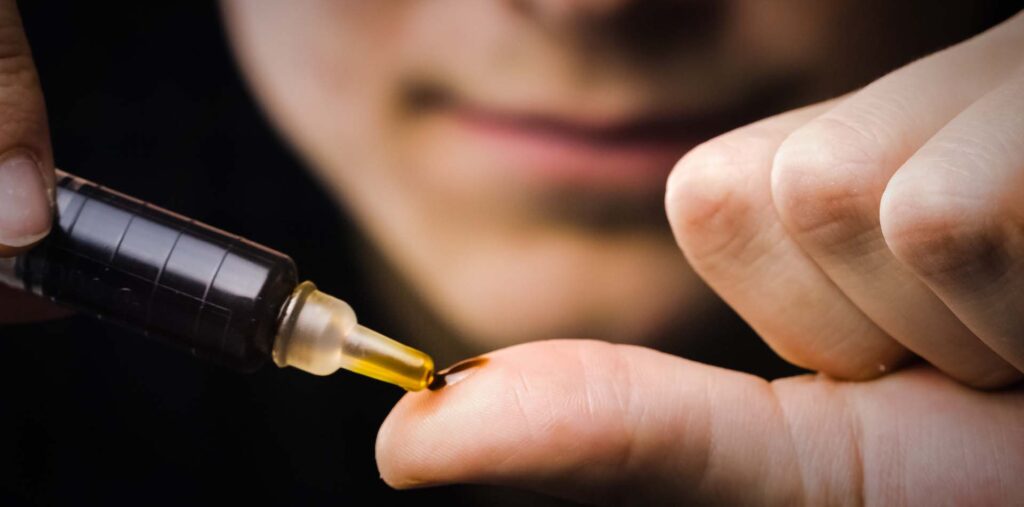
The treatment protocol that Rick Simpson established for those facing serious medical conditions is 60 grams of RSO over a 90-day period.
How to Use RSO
That amount of RSO can cause an intense reaction and can be difficult for new patients to tolerate. As a result, Simpson developed an incremental dosing regimen where you take three doses per day, about eight hours apart, as follows:
- Week 1: one drop the size of half a grain of rice
- Weeks 2-5: slowly increase the dosage until reaching one gram per day
- Weeks 5-12: Continue with one gram/day until reaching 60 grams
How Much RSO Should New Patients Take?
Because of its intensity, new patients should start with a dose measuring half the size of a grain of rice. Wait at least 90 minutes to assess the effects before deciding whether to take another dose.
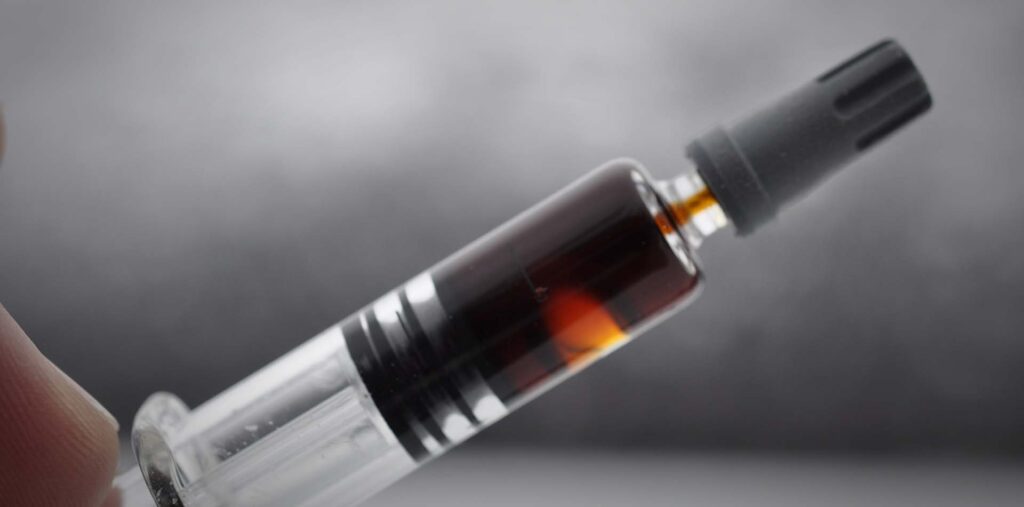
Due to its high THC content, it is not uncommon for new patients to sleep a lot when beginning their treatment regime. If they have a life-threatening illness, sleep is essential to promote healing.
Because of the high cost of purchasing RSO at the level of treatment Rick Simpson suggests, (60 grams of RSO), he recommends making it on your own.
Of course, not everyone has access to the amount of flower necessary to produce 60 grams of RSO (1 pound). Many patients may also not feel knowledgeable enough to make their own medicine.
So, if that is you, here are a few things to keep in mind during your visit to the dispensary.
Considerations When Choosing RSO at a Dispensary
- Was it made using 100% organic cannabis?
- Which strains were used?
- Is it made from cannabis flower or cannabis flower and leaves?
- Which cannabinoid is dominant?
- Is the cultivator reputable?
- Do other patients recommend it?
How To Make RSO
When Rick Simpson first started producing his oil, he used naphtha or butane to extract the oil. The problem is that they are highly flammable and can be poisonous if they’re not completely evaporated.
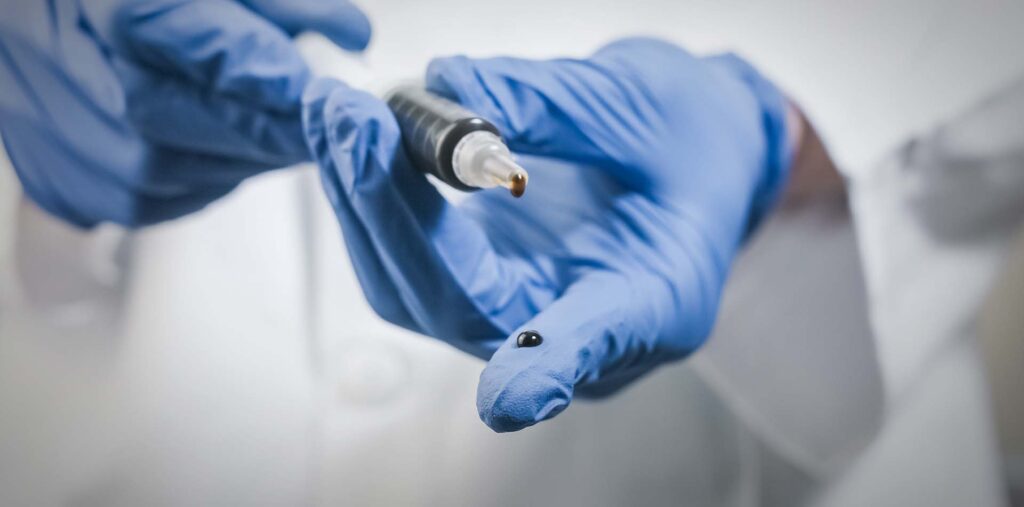
Since then, Simpson has recommended that 99% isopropyl alcohol could be a suitable substitute for naphtha or butane:
It will take about one pound of high THC, Indica flower to produce 60 grams of RSO, which is the amount Rick Simpson recommends for the treatment of serious ailments like cancer. Rick Simpson detailed his process of making RSO here.
Please note that depending on the type of solvent being used, the extraction process can be dangerous and can present the risk of explosion if not done correctly.
Therefore, make sure that you read everything that is written on his site and perhaps check out the documentary, Run from the Cure – before attempting to create your own RSO.
Here are a few guidelines to help keep you safe:
- Only work in areas with proper airflow and ventilation
- Once you begin the process of evaporation never leave it unattended
- Do not use a gas stove or open flame near these solvents – heating RSO will produce gasses that could ignite when exposed to sparks, hot elements, or open flames
How to Use RSO
Whether you’ve made your own RSO, or picked some up at the dispensary, there are a few different ways to ingest it. Typically, RSO comes in a syringe without a needle. So, you can use a RSO syringe to take your RSO:

- Orally – the most common method but when consumed orally, THC will be converted to 11-hydroxy-THC which is five times more psychoactive2
- Apply to upper gums or below the tongue
- Topically – like Rick Simpson did to treat his skin cancer
- Suppositories with RSO capsules – it’s believed this method provides the most bioavailability of the cannabis compounds
Can You Smoke RSO?
The answer to this question is simple. No, you should not smoke RSO. Since RSO extracts all the components of the cannabis plant, it will include things like chlorophyll, fats, and lipids that make it unsuitable for smoking.2
A few other questions that are often asked about RSO are listed below with the answers:
Q. How long does RSO take to work?
A. Generally it will take at least 1-2 hours to kick in.
Q. How long does each dose of RSO last?
A. Each dose of RSO can last about 4-6 hours.
Q. How often should I take my RSO?
A. It is recommended that you take 3 doses a day about 8 hours apart – in the morning, afternoon, and at night, about an hour before going to sleep.
Bloom Medicinals – How to Get RSO
Whether you decide to purchase a high THC Indica strain of cannabis flower to make your own RSO, or purchase RSO extracts, edibles, or capsules – Bloom Medicinals is here to help identify the consumption methods and forms of cannabis that are best for you.
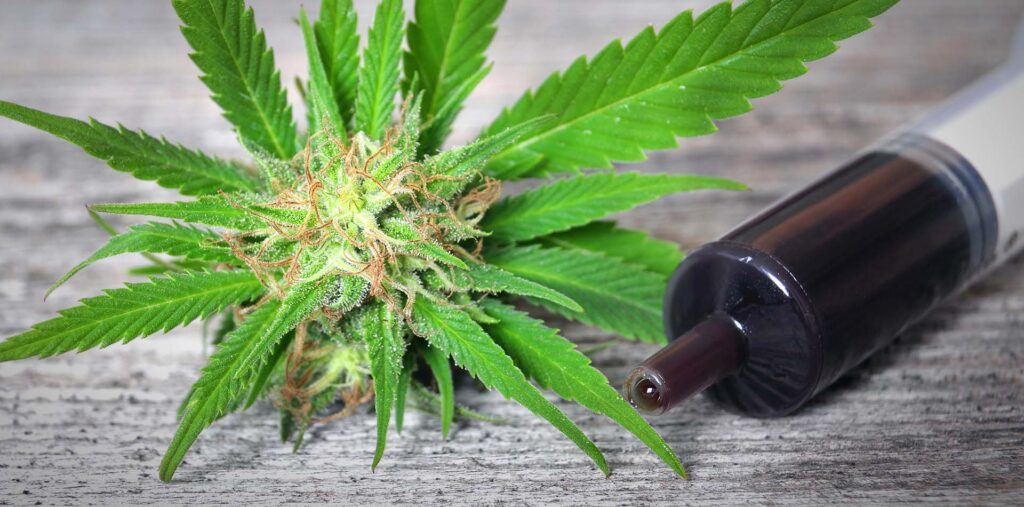
That is why Bloom Medicinals would like to invite you to schedule a complimentary, one-on-one, consultation with a patient specialist near you.
During this free consultation, we will take the time to get to know you, your qualifying conditions, medications, dietary restrictions, activity level, and any effects you’re seeking, or looking to avoid.
By doing so, we can help to identify the best way for you to enjoy the quality of life enhancements that are possible when you medicate with cannabis.
Take the first step toward an improved quality of life by scheduling your free consultation at a Bloom Medicinals dispensary near you!
Sources:

